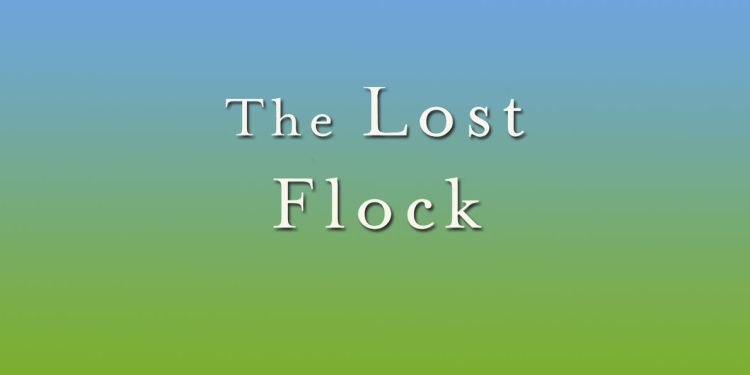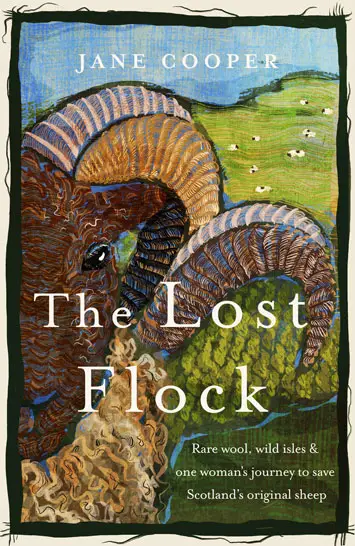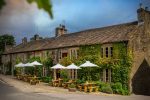The Lost Flock by Jane Cooper – Review

By Clare Jenkins
Orkney is a great place for bird-watching, perhaps less well-known for sheep-spotting. Yet, as well as having 30,000 breeding sheep, it’s also home to more than one rare breed.
I’ll come onto Jane Cooper’s flock shortly. First to North Ronaldsay, the most northerly of Orkney’s islands, nearer Oslo than London. Inhabited by just 60 people, it’s also home to 2,000 seaweed-eating sheep: short-tailed, small-horned, imp-faced and pretty feral. They’re kept on the rocky foreshore by a drystone dyke and, a couple of times a year, the islanders round them up for shearing and marking in an ancient act of communal agriculture called the pund. In a Wicker Man-ish sort of way, the timing of the pund depends on the moon and the tides: when the tide is at its highest, the sheep have less foreshore to run around on and are more easily herded.
I know all this because I once made a BBC radio programme about them. It was fascinating to make, mainly because of the people I met while on the island: the then laird, who at one point asked, in patrician tones, “Are you a Socialist?” The couple who ran the post office-cum-pub after ditching their teaching jobs in Yorkshire for a life ‘on the edge’. The sculptor who gave up the prospect of fame and fortune on the mainland to return to his family farm and continue old farming traditions. The doctor running Britain’s smallest GP practice, who teamed his medical duties with those of RSPB warden, coastguard, head fireman, chairman of the island’s community council and owner of its Bird Observatory.
 “Dedication”
“Dedication”
One person I didn’t meet was Jane Cooper, author of The Lost Flock and another escapee from city life – in her case, Newcastle. She lives 40 miles south of North Ronaldsay, on the island of Shapinsay. And her sheep are Orkney Boreray, the last remnants of a ‘lost flock’ of sheep named after an island near St Kilda. Apparently ‘one of the few surviving examples of primitive sheep in Northern Europe’, their history can be traced back 6,000 years, to Viking times.
The Last Flock traces that history as well as being a manual for heritage sheep-rearing, -breeding and wool-gathering, and a plea for ‘enlightened agriculture’, sustainability and animal welfare. It’s a thorough account of ‘Poo Parties’, international sheep and wool conferences, academic papers on ‘Viking Woollen Square-Sails and Fabric Cover Factor’, the art of sheep castration and the intricacies of sheep mating, spinning and spindles, starring sheep named Dorah, Bilbo, Frodo and Boris (a ram). It’s also an in-depth account of sheep husbandry from birth to death (Boreray Bangers sausages are award-winning, apparently, and some of the mutton has ended up in top restaurants). And it takes in Orkney’s sometimes challenging weather, agricultural shows and its fight to retain its abattoir.
Thanks to Cooper and her fellow enthusiasts, there are now eight Boreray flocks in Orkney, so lost they are no more. And I doff my sheepskin hat to her for her utter dedication to their cause.
‘The Lost Flock’ by Jane Cooper is published by Chelsea Green









